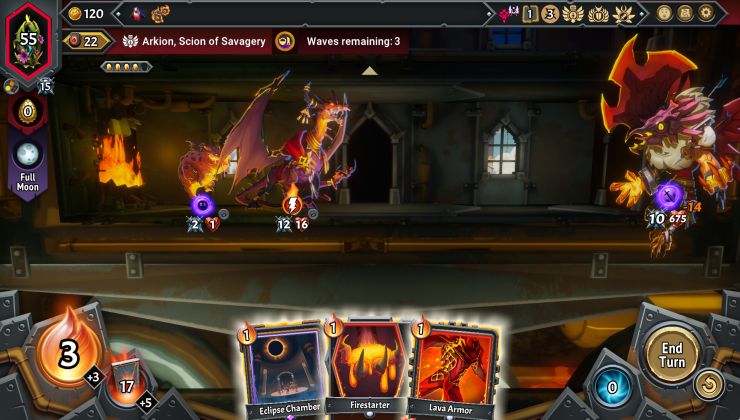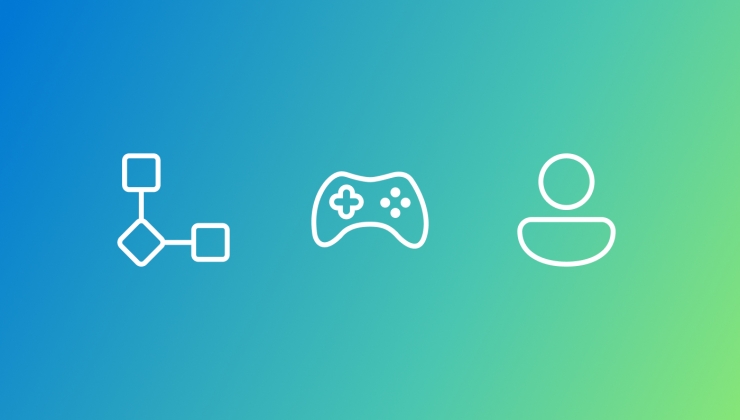Flathub [Official Site], a 'central hub' for Flatpak [Official Site] applications have now made a Flatpak of Steam available for Linux users.
Note: I've not used Flatpak at all myself, nor have I tried out this Steam Flatpak as I don't want any issues with my existing install.
Found on the github for Flathub is com.valvesoftware.Steam, where you can find out more about what it's doing. While it is unofficial, Valve could request access if they wished to take control of it, according to this comment on github.
The actual Steam download itself is little more than another downloader anyway, which then downloads the full Steam application. The Flatpak for Steam doesn't actually contain the Steam downloader, looking at the JSON file, it actually links to the official downloadable tar.gz from Valve. Steam also updates itself, so it's possibly one of the less important applications for Flatpak. While Flatpak is claimed to be more secure than .deb and .rpm, there's a lot of conflicting information and opinions on that.
Having a proper cross-distribution package management tool will benefit Linux quite a lot in the long run, at least that's what I think anyway. Being able to download and update any application I want and be up to date no matter the distribution is very appealing.
If you want to read more about Flatpak itself, check the official FAQ.
Thanks to AsciiWolf for the email tip!
Note: I've not used Flatpak at all myself, nor have I tried out this Steam Flatpak as I don't want any issues with my existing install.
Found on the github for Flathub is com.valvesoftware.Steam, where you can find out more about what it's doing. While it is unofficial, Valve could request access if they wished to take control of it, according to this comment on github.
The actual Steam download itself is little more than another downloader anyway, which then downloads the full Steam application. The Flatpak for Steam doesn't actually contain the Steam downloader, looking at the JSON file, it actually links to the official downloadable tar.gz from Valve. Steam also updates itself, so it's possibly one of the less important applications for Flatpak. While Flatpak is claimed to be more secure than .deb and .rpm, there's a lot of conflicting information and opinions on that.
Having a proper cross-distribution package management tool will benefit Linux quite a lot in the long run, at least that's what I think anyway. Being able to download and update any application I want and be up to date no matter the distribution is very appealing.
If you want to read more about Flatpak itself, check the official FAQ.
Thanks to AsciiWolf for the email tip!
Some you may have missed, popular articles from the last month:
All posts need to follow our rules. For users logged in: please hit the Report Flag icon on any post that breaks the rules or contains illegal / harmful content. Guest readers can email us for any issues.
Worth noting is that the Flatpak install is unable to access your home folder, so even if it wanted to conflict with your full Steam install that would be impossible for it to do. You can even run both Steam installs at the same time because of the sandboxing
I'm unsure how well non-nVidia drivers work for Flatpak at the moment though, only have nVidia systems on hand.
I'm unsure how well non-nVidia drivers work for Flatpak at the moment though, only have nVidia systems on hand.
1 Likes, Who?
Sorry for being ignorant, but I felt I must ask:
Why is this information worth writing article about?
Don't get me wrong, I don't want to criticize here, I just want to understand, because honestly this information seems to have no value at all.
Why is this information worth writing article about?
Don't get me wrong, I don't want to criticize here, I just want to understand, because honestly this information seems to have no value at all.
1 Likes, Who?
Sorry for being ignorant, but I felt I must ask:
Why is this information worth writing article about?
Valve only officially supports Ubuntu with their installer. Many distributions don't have Steam packaged and need to add third-party repositories and such. Sometimes those repos are problematic. Having a cross-platform installer in the form of flatpak means users on any distribution supporting flatpak (quite a few at the moment, and growing) can install it. Think of it as a generic exe installer, independent of your distribution packaging policies etc. You also benefit from sandboxing. Very helpful for both Ubuntu and non-Ubuntu users.
5 Likes, Who?
Note: I've not used Flatpak at all myself, nor have I tried out this Steam Flatpak as I don't want any issues with my existing install.There shouldn't be any conflicts. The Steam-Flatpak doesn't have any access to your home folder (except to ~/.var/app/com.valvesoftware.Steam). Everything that gets created by Steam will reside inside this folder though you can share additional folders with the --filesystem argument of flatpak run.
But it'll still need some work until everything works OOTB: Source games just don't start because of the S3TC extension missing, Borderlands 2 & GRID Autosport crashed. Rocket League started but the textures were missing (again S3TC I guess). Maybe with the proprietary nVidia driver it works better.
3 Likes, Who?
Waiting for the day that Steam client for Linux is 64 bit..
0 Likes
Seens interesting. How does faltpak compares to 0install?
1 Likes, Who?
Sorry for being ignorant, but I felt I must ask:There's no such thing as an information without value :)
Why is this information worth writing article about?
Don't get me wrong, I don't want to criticize here, I just want to understand, because honestly this information seems to have no value at all.
But yes, it's not much different from, let's say, an information that Steam got packaged for yet another distro ;)
Last edited by hardpenguin on 19 Jun 2017 at 1:09 pm UTC
0 Likes
But yes, it's not much different from, let's say, an information that Steam got packaged for yet another distro ;)
It's very different, though, since this is relevant to users of all distros.
3 Likes, Who?
Waiting for the day that Steam client for Linux is 64 bit..
That's less important though, considering you will have to have 32 bit libraries to be installed due of majority of games being 32-bit anyway.
As for importance - this means Steam can be installed from one package on newest Debian, Fedora, RedHat Enterprise and other distributions supporting stable flatpak.
I think that's quite an achievement considering Steam Linux gaming picking up steam.
1 Likes, Who?
...
Last edited by metro2033fanboy on 19 Jun 2017 at 3:18 pm UTC
Last edited by metro2033fanboy on 19 Jun 2017 at 3:18 pm UTC
0 Likes
This is very cool news :)
I have to admit that flatpak seems much easier to use now than when it first came out. And due to that I no longer have much of an opinion as to which universal distribution model becomes the dominant one :)
I have to admit that flatpak seems much easier to use now than when it first came out. And due to that I no longer have much of an opinion as to which universal distribution model becomes the dominant one :)
0 Likes
Can anyone confirm if this works with Games not installed on /home drive ? I have my games on a larger mounted HDD. This works for me as the drive is partitioned and contains other files too. Having to use the Home drive would kind of suck for me, not only that it means my distro hopping gets a lot more convoluted as i either have to re-download my games / mods each time i rebuild or copy the files to a larger disc and back again hoping that there is no corruption and/or permission issues ( I have had the "steam library folder must be on a filesystem mounted with execute permissions" bug before when moving in this manner on new systems. Also the 'backup feature doesn't work on Steam )
As an aside i also just like to keep as many non system folders and files off my main root drive as possible for reasons.
Last edited by on 19 Jun 2017 at 3:10 pm UTC
As an aside i also just like to keep as many non system folders and files off my main root drive as possible for reasons.
Last edited by on 19 Jun 2017 at 3:10 pm UTC
0 Likes
Can anyone confirm if this works with Games not installed on /home drive ?This should work without a problem (my games are on a /mnt/-mounted partition). But you have to allow access to the directory with --filesystem=<DIRECTORY> (either via flatpak run for each application start or flatpak override to persist the setting) or else you won't be able to access it.
1 Likes, Who?
Waiting for the day that Steam client for Linux is 64 bit..What benefit would Steam gain from being 64-bit? You can install and run 64-bit software through Steam, so what does it matter if Steam itself is 64-bit?
0 Likes
Well that sounds rather unfriendly, hope they make that much easier in future.Can anyone confirm if this works with Games not installed on /home drive ?This should work without a problem (my games are on a /mnt/-mounted partition). But you have to allow access to the directory with --filesystem=<DIRECTORY> (either via flatpak run for each application start or flatpak override to persist the setting) or else you won't be able to access it.
2 Likes, Who?
*.RUN files *.BIN files *.SH files are already linux generic executables and installers. just like
*.MSİ *.EXE *.BAT files as in windows. also tgz deb pisi rpm much more native i guess.
meanwhile snappy package format much more better developped for Ubuntu Linux and has more packages why bother with flatpak or appimage or something else along the way. plus containering sandboxing is good but what about library loading and usage with these library container package formats ?
i mean we have to have Common Standarts For linux distrubutions. so we can advance much more faster then ever.
*.MSİ *.EXE *.BAT files as in windows. also tgz deb pisi rpm much more native i guess.
meanwhile snappy package format much more better developped for Ubuntu Linux and has more packages why bother with flatpak or appimage or something else along the way. plus containering sandboxing is good but what about library loading and usage with these library container package formats ?
i mean we have to have Common Standarts For linux distrubutions. so we can advance much more faster then ever.
0 Likes
Waiting for the day that Steam client for Linux is 64 bit..
Dunno. The day the steam client will need more than 4 Gb of ram I may start to have an issue with it in the first place.
1 Likes, Who?
*.RUN files *.BIN files *.SH files are already linux generic executables and installers. just likeNone of which come close to helping solve issues that Flatpak is aimed at.
*.MSİ *.EXE *.BAT
1 Likes, Who?
I kinda like Flatpak, but it seems to me like a useful secondary thing rather than something that can or should kill .deb or .rpm and apt and so on. Like, it could be handy for exactly this kind of thing--closed applications not interested in packaging themselves for different distros and who, since they're closed, the distros can't package themselves. Of course, one significant kind of closed source application like that is games. So Flatpak could be a great thing for our purposes.
Aside from that, it could be handy for things with specific and weird dependencies, like on library versions significantly different from whatever is more or less current; you could keep the distro overall cleaner by doing Flatpaks of such things and keeping the weird versions separated from everything else. But for the most part, I think solid dependency management allows a much leaner system and enforces a kind of quality control that's probably a good idea anyway. And apt and similar things for non .deb distros work very well for the most part, as do most of their gui front ends. I'm not sure I think the duplication that would come from Flatpak-for-everything would be worth whatever advantages it would be supposed to have.
Aside from that, it could be handy for things with specific and weird dependencies, like on library versions significantly different from whatever is more or less current; you could keep the distro overall cleaner by doing Flatpaks of such things and keeping the weird versions separated from everything else. But for the most part, I think solid dependency management allows a much leaner system and enforces a kind of quality control that's probably a good idea anyway. And apt and similar things for non .deb distros work very well for the most part, as do most of their gui front ends. I'm not sure I think the duplication that would come from Flatpak-for-everything would be worth whatever advantages it would be supposed to have.
0 Likes
I kinda like Flatpak, but it seems to me like a useful secondary thing rather than something that can or should kill .deb or .rpm and apt and so on.
It's worth noting that Flatpak is not designed to compete with system package managers, which neither Snappy nor AppImage are trying to do either.
Flatpak is designed for packaging userland applications in a way that means users don't have to worry about dependencies, and the sandboxing means you don't have to worry about broken code damaging your system either.
Additionally, it can be run entirely in a user's home, so users don't need to pester sysadmins about installing applications or dependencies - nor about keeping them up-to-date.
I'm actually more of a fan of Flatpak than Snappy in this particular case, Snappy requires a system daemon while Flatpak only requires an application in PATH - on a new kernel it doesn't even require setuid.
0 Likes











 How to set, change and reset your SteamOS / Steam Deck desktop sudo password
How to set, change and reset your SteamOS / Steam Deck desktop sudo password How to set up Decky Loader on Steam Deck / SteamOS for easy plugins
How to set up Decky Loader on Steam Deck / SteamOS for easy plugins
See more from me